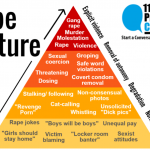Sandra Oh has left Grey’s Anatomy, and frankly, she was the show; for the past nine years, I only tuned in to watch how her character, Cristina Yang, would break yet another stereotype, yet another normative female behavior. And she never failed me.
Her creator, Shonda Rhimes, had her fall in love, get married, and get pregnant, all to no avail; these roles just did not adhere to her skin as they did for her “person,” Meredith Grey. Christina Yang held her father’s heart in her hands when she was only about nine years old (if I recall correctly), and since then, all she wanted was to be a cardiothoracic surgeon. Nothing remained in her way. Not the baby she decided to abort; not the two men she loved or the one she married; not even her competitive friendship with Meredith stopped her from achieving her goals. And this last season, we saw how women could or could not have it all — which is a relevant and current discussion for women who want more than just motherhood and marriage.
Sandra Oh’s Christina Yang tried the marriage thing, but it failed when Owen insisted on babies and she refused. A beautifully provocative episode this past season shows Christina’s future with or without her love interest, Owen. Envisioning her future with Owen, we see her as a mother, placing her career on the sidelines, and supporting her student as he receives the Harper Avery Award; loving Owen, marrying him, places her in the traditional roles of femininity that force her to choose motherhood over career. She’s not happy in this life; she is drowning with regret. In the scenario in which she chooses her career, she walks away from love, from Owen, but receives the Harper Avery Award and is a renowned surgeon and leader in her field. And although in the end she doesn’t receive the famous award — out of politics rather than lack of merit — she leaves Seattle Grace, her job, and all she knows for a position as Director of Cardiothoracic Surgery in Switzerland — which is interesting since this is a country that allows women to have the kind of equality that American women are not offered as freely or generously.
Interestingly, at the same time that this fictional character leaves, journalist Barbara Walters faces her own voluntary exit from television. A pioneer newswoman who was conducting interviews alongside men — at a time that women newscasters were not given these privileges — Barbara Walters has been a respected and public reporter for fifty years. In her last interview with ABC this past Friday, she addressed some of the same issues that Shonda Rhimes brings to the forefront among the female doctors in Grey’s Anatomy: can women have it all?
During this portion of the Barbara Walters interview, Walters spoke about her own role as a mother, and how difficult it was to balance her career and her daughter — and of course, the regret is that she wishes she had spent more time with her daughter — often missing out on this time because of her career. Then her male interviewer asked her this question, which shows how deluded we are in thinking that anything has changed — that it’s easier for women today than it used to be in the past. Nothing has changed.
“Things have changed for women, haven’t they? Things have gotten better than they used to be, for women?” Her interviewer asked.
Her answer was quick, serious, and flat; she delivered it without a smile or a pause: “No.”
Her response was followed with clips of interviews she had with women who discussed choosing careers over family: Katherine Hepburn offered that if she were a man, she would not marry a woman with a career; if a child with mumps interfered with her career — a role she had to play — she would want to strangle her child. Whoopi Goldberg confesses that she gave up her child over her career, and this choice hurt her child, but she would not choose differently. These are powerful confessions — the kind that women are not allowed to utter openly — but these women are known for their uniqueness, their difference from the norm.
Making this choice is not easy, especially when you don’t choose the kitchen, the child, the husband, the garden, or the carpool line over your career. It’s easy when you choose the family. That’s the norm. That’s acceptable, and no one will fight you over it.
Rhimes’ female characters are strong, but they are not without flaws, insecurities, or self-doubt. We see them navigate their professional and private lives with confusion and angst, but we also watch them deal with issues that many of us encounter past our living room couches. Whose career takes the backseat? Can we realistically take turns? Is this fair? How do we balance children and love and work? It’s why this show is as riveting as it is. And as Christina Yang’s character stoically rejects the domestic in preference for holding a virtual heart in her hands, Meredith, like the spunky Bailey, attempts to have it all. But we see the imbalance, the unfairness, the sacrifices that they do make — one way or another — either with their children or their careers. Something has to give, and it’s usually the women who give in or give up.
This is how we see Meredith Grey: she is a mother and a surgeon, and she forges a plan with her husband who promises to stand back and care more for the kids while she pursues her career. Of course, he reneges when the President of the United States offers him a job. Then we see the regular conundrum that couples face — whose career takes precedence? Typically, we see Meredith take the back seat as he drives their marriage forward, moving them to Washington and finding her a job at another hospital.
And then we hear Christina’s last words to Meredith, which I just had to write down, because they resonate with me, and perhaps with so many women out there who often feel they have been sacrificed for the needs of others: — for the sake of the family:
You’re a gifted surgeon, with an extraordinary mind.
Don’t let what he wants eclipse what you need;
He’s very dreamy, but he’s not the sun.
You are the sun.
I just loved these lines; they perfectly define the secondary roles we adopt because we have been conditioned to think this is normal, natural. Women are malleable, and so, we sacrifice because we think we want to. It’s easier, isn’t it, to just go along with the unspoken rules?
And then she finally walks out, reminding her best friend and person — and women in general — not to be eclipsed by the needs and wants of others — no matter how much we love them. We see Meredith plant her feet in Seattle and refuse to leave her home, her job, her birthplace because her husband has received his dream job. What about her dream job, her research, and what she wants? Her needs were never considered, and many of our needs are not considered, for we sacrifice for the family — this is what we do. This is what we have always done.
As Christina Yang’s character leaves the show, she leaves a void that I hope Shonda Rhimes will fill with another one of her powerful characters: one who walks against the current in every way that Yang’s character did, offering us and our daughters another example of femininity and womanhood that has been rarely imagined let alone lived.
Whether fictional, like Christina Yang, or real, like Barbara Walters, these are two examples of the feminine in terms of agency and intellect that we should all aspire to emulate.
This was originally published on BlogHer in 2014







